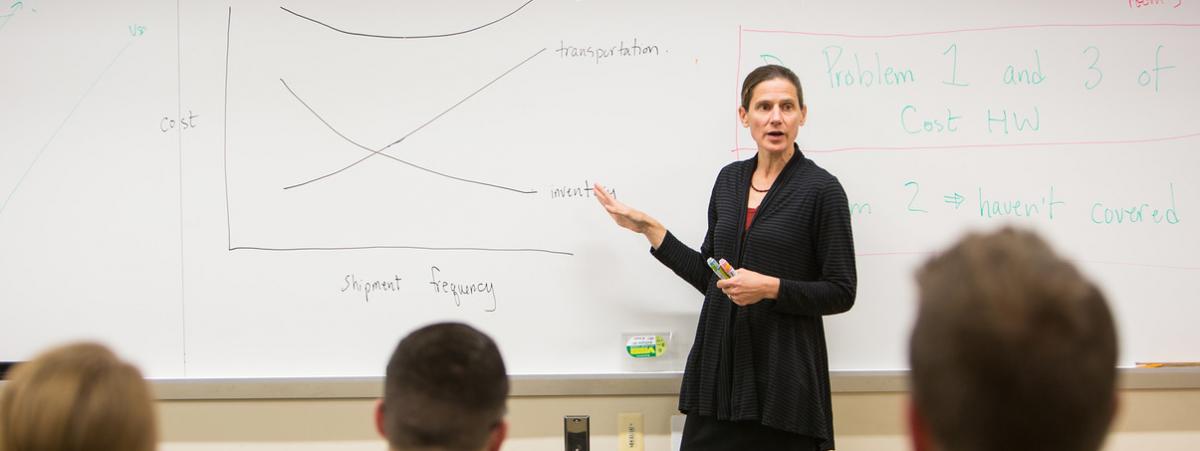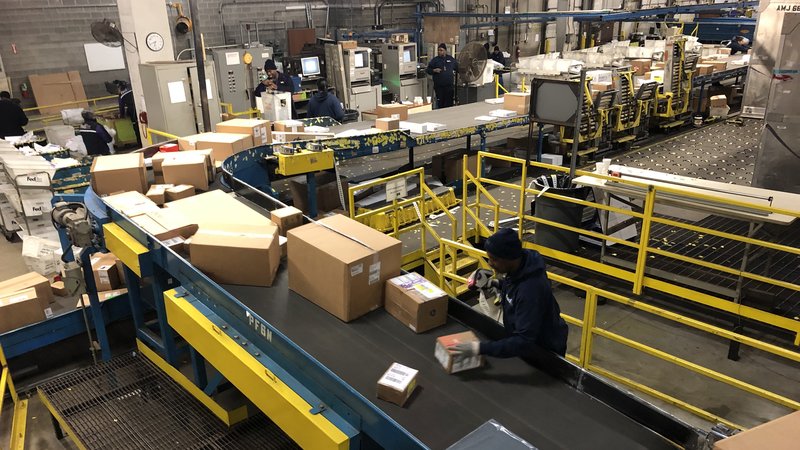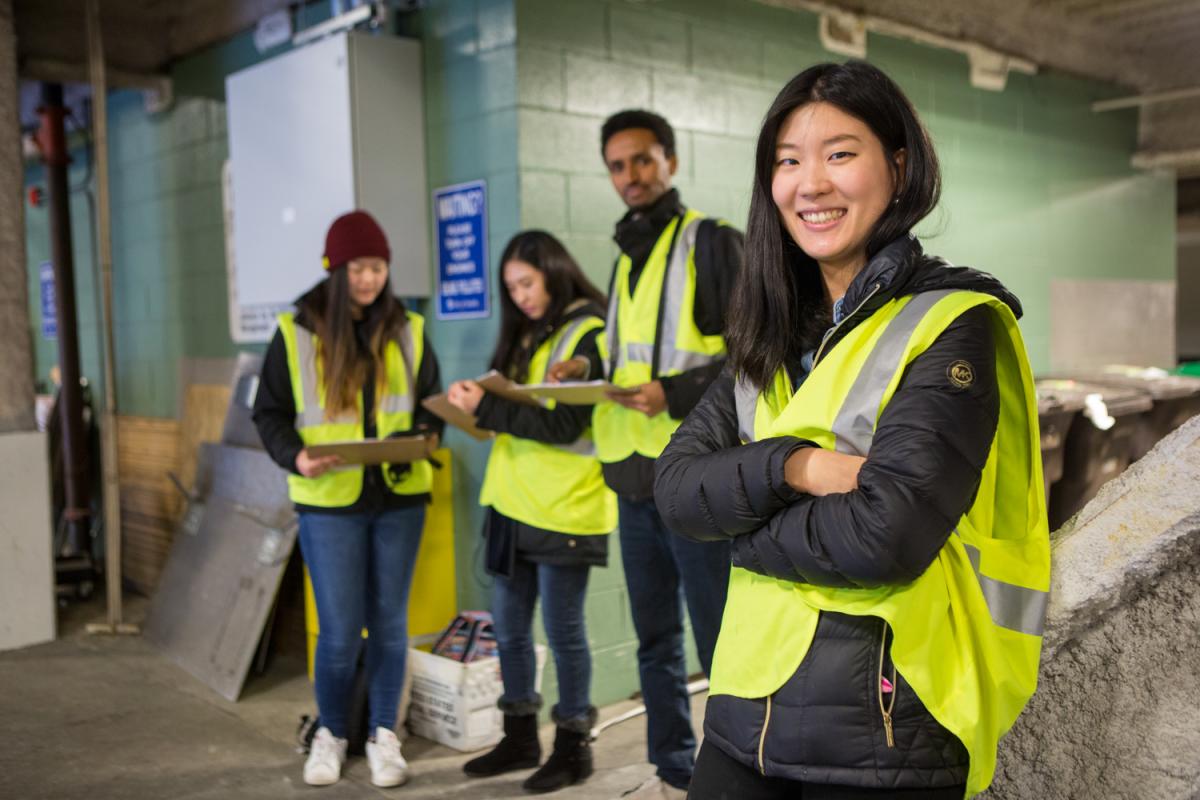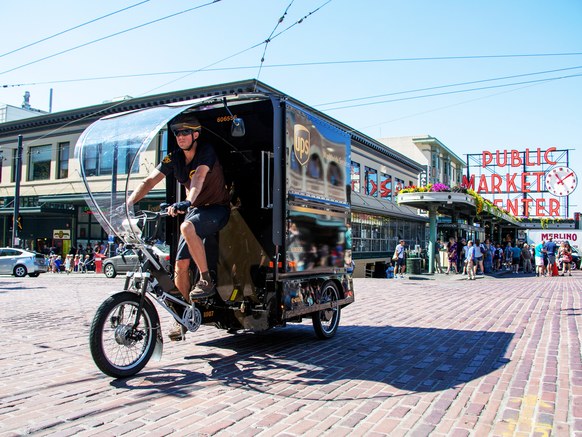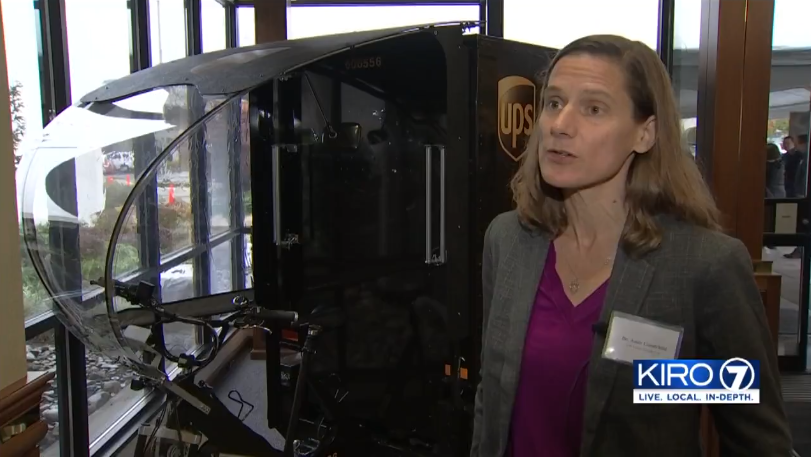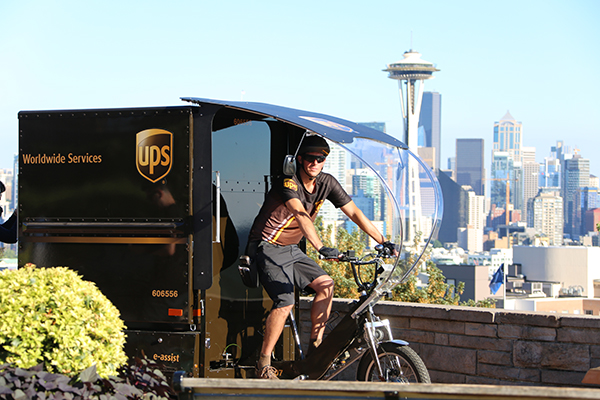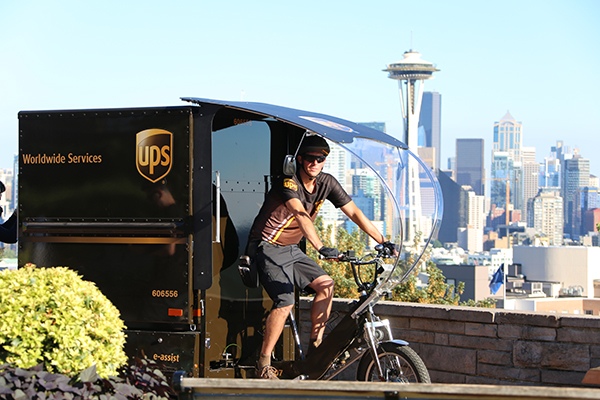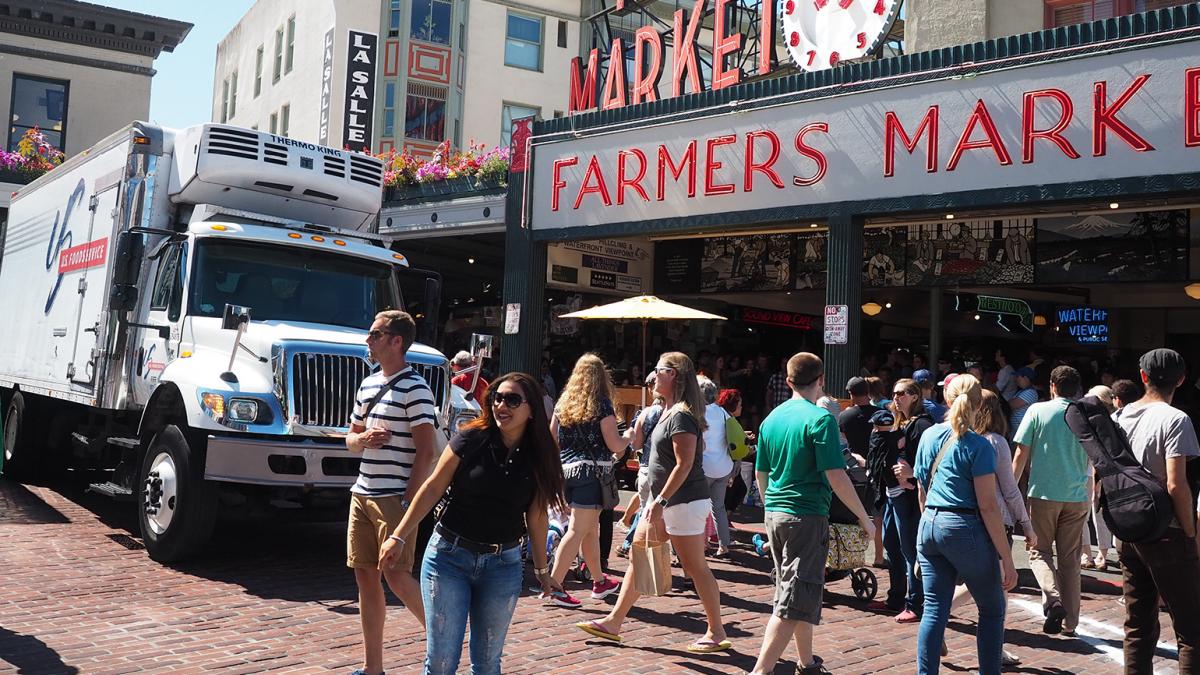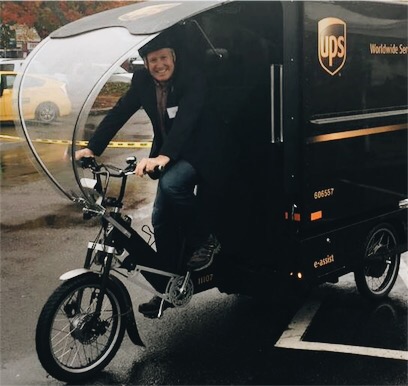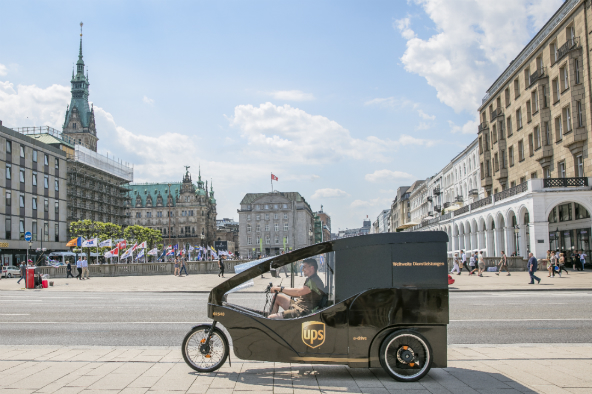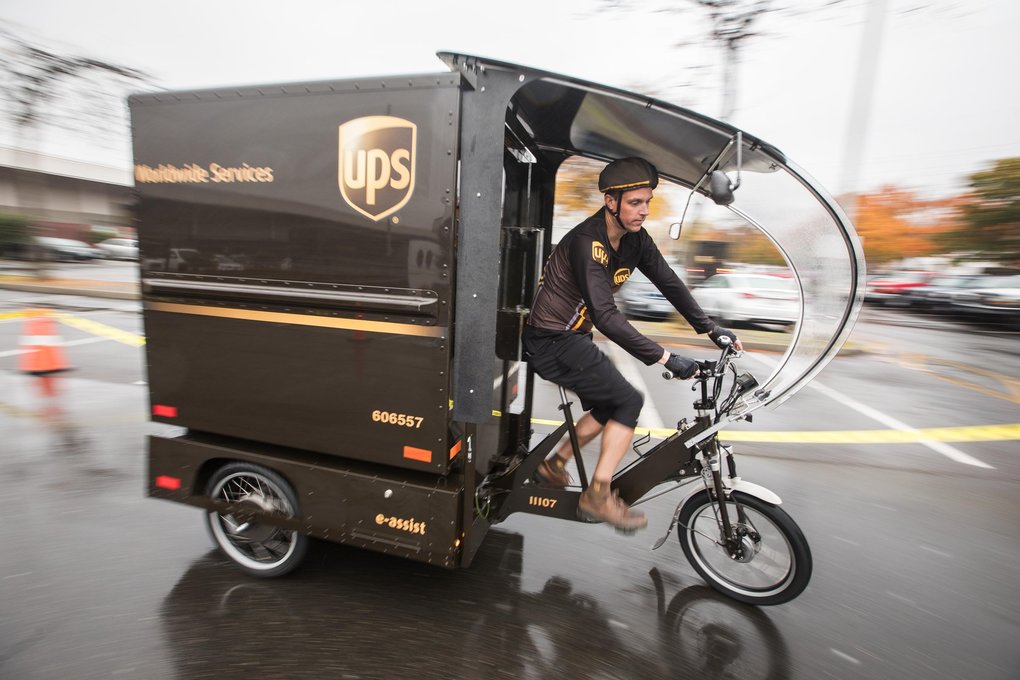In the Media
Many online retailers are extending holiday free shipping, but our Anne Goodchild says there’s no such thing.
“One of the things that still does surprise me is the accuracy and the speed and the quality control that has been developed and is present in this delivery system,” says Anne Goodchild.
Logistics researchers used to worry about the first and last mile as the most problematic and least efficient part of freight movement. “Now,” Anne Goodchild says, “we worry about the last 50 feet.”
Rising e-commerce means more delivery trucks and urban gridlock. Anne Goodchild and Barbara Ivanov write that lockers at transit centers, where carriers can leave packages for people who live or work nearby, are a potential solution.
Stolen packages represent one of the biggest service-design challenges facing today’s retail companies. Urban Freight Lab researchers have an idea for a fix.
UPS is collaborating with the University of Washington’s Urban Freight Lab on a pilot to move packages around Seattle by electric tricycle.
You’ll soon see a miniature version of the classic UPS delivery vehicles on Seattle sidewalks and bicycle lanes.
In a novel study, the Seattle Department of Transportation and the UW’s Urban Freight Lab are counting and analyzing truck traffic into the central city. The objective, said SDOT senior civil engineer Christopher Eaves, “is to get an idea of what our commercial health is downtown.
UPS is taking its delivery processes to the streets. While that does not sound like anything major in itself, it comes with a caveat in that it is taking delivery to the streets on two bicycle wheels, rather than the customary four via its much more commonly used delivery trucks and vans. The Urban Freight Lab is participating in this pilot program.
Over the next year, UPS and the Urban Freight Lab at the University of Washington will evaluate the cargo electric bicycle’s reliability and other features as they are put to the test on Seattle’s hilly streets.
UPS and the University of Washington’s Urban Freight Lab will evaluate the cargo eBike’s reliability, design, and function in Seattle’s infrastructure over the next year.
The cargo e-bike pilot is the result of open collaboration between UPS; the University of Washington Urban Freight Lab; the Seattle Freight Advisory Board (SFAB); Silver Eagle Manufacturing; City of Seattle leadership; and the Seattle Department of Transportation’s Final 50 Feet Program.
A new partnership between the city of Seattle, UPS and the University of Washington’s Urban Freight Lab is placing a new delivery vehicle on congested city streets — a pedal-assist cargo eBike with a customized, modular trailer — with an aim to lower emissions and improve delivery efficiency.
UPS and the University of Washington’s Urban Freight Lab will evaluate the project on whether it reduces the number of times a package does not reach a customer on the first try, and how long the bikes are stationary — also known as dwell time.
The Department of Energy awarded a to Seattle-based Urban Freight Lab (UFL), a project of the University of Washington’s Supply Chain Transportation & Logistics Center, to pilot test three innovations that could reduce congestion caused by commercial vehicles and make commercial load/unload zones more productive.
